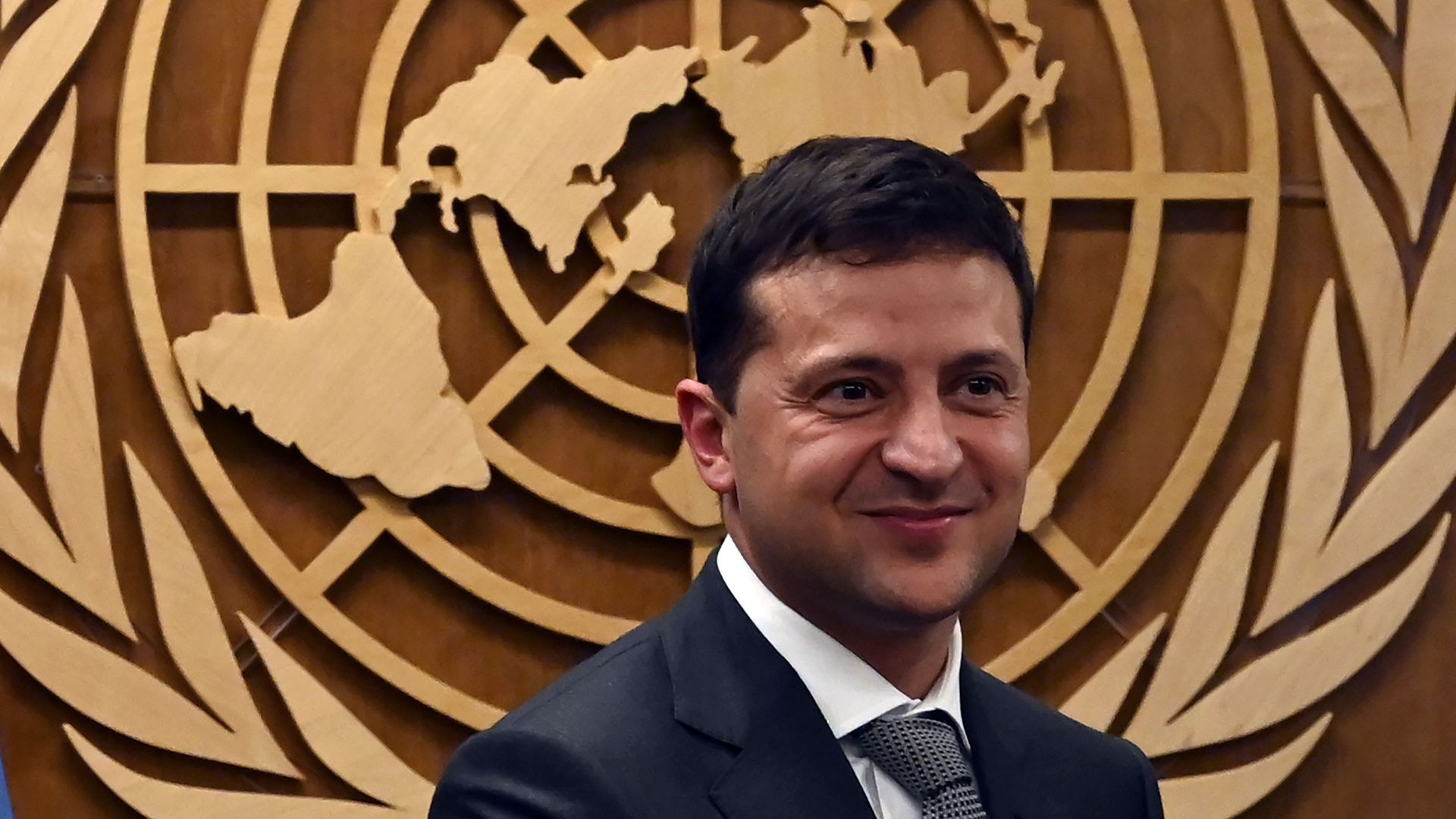After Trump-Zelensky scandal, Ukraine pressed to reset Western ties
Add Axios as your preferred source to
see more of our stories on Google.

Zelensky at the 74th Session of the United Nations General Assembly. Photo: Timothy A. Clary/AFP/Getty Images
Ukraine's president, political neophyte Volodymyr Zelensky, appears out of his depth after just 4 months in office, as his relations with President Trump have put him front and center in a political scandal rocking the U.S. and rippling across the globe.
Why it matters: Given the deep challenges facing Ukraine and Zelensky, Ukraine can hardly afford strained relations with the U.S. and European partners. Weakened Western ties would complicate efforts around democratic progress, economic growth and national security — particularly in pushing back against the malign influence of Vladimir Putin's Russia.
Where it stands: Until this week's release of a transcript of his July 25 call with Trump, Zelensky had received largely positive marks from the West for advancing democracy and taking steps toward a peace settlement in Donbas, including a prisoner swap with Moscow that brought home 35 Ukrainians.
- In return, the U.S., Europe and other partners have pledged continued support for Ukraine’s sovereignty and territorial integrity in its efforts to rebuff Russia, tackle corruption and carry out needed reforms.
Background: Zelensky and his Servant of the People political party were handed the keys to the country by a frustrated Ukrainian electorate in the April 2019 elections and have since ridden an unprecedented wave of popularity.
- Zelensky's mandate is to provide new leadership to tackle corruption, end the conflict in eastern Ukraine and advance Ukraine’s EU and NATO integration efforts.
What to watch: Ukraine has enjoyed bipartisan support in Washington, and diplomatic support and assistance will likely continue, albeit with a more circumspect approach. Zelensky is similarly expected to follow through on his commitment not to be involved in U.S. elections and to carry out proposed reforms.
- In Europe, Zelensky will have to redouble his diplomatic efforts and outreach to allies stung by his comments in the transcript, particularly German Chancellor Angela Merkel, who has led efforts to sustain Ukraine-related sanctions on Russia.
- He will especially hope to count on Merkel and French president Emmanuel Macron, also singled out in the call, at next month's meeting of the Normandy Four — Germany, Russia, Ukraine and France — to discuss resolving the conflict in eastern Ukraine.
Jonathan Katz is a senior fellow with the German Marshall Fund of the United States.
